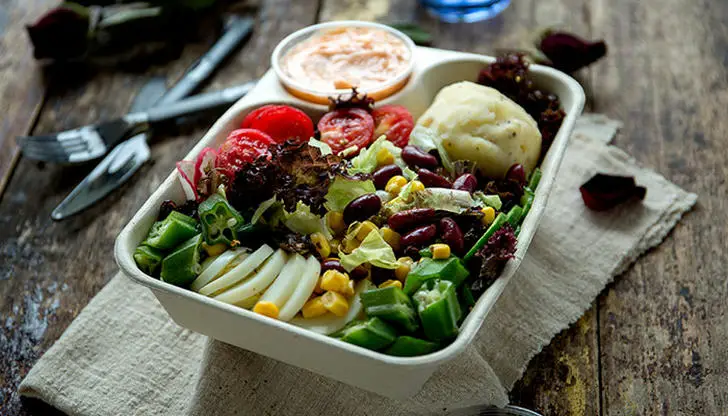Some Facts You Need to Know Before Going Vegan
Advertisement

If you're considering adopting a vegan lifestyle, or are just curious about vegan diet, choosing to include more plant-based meals in your diet has many benefits for you and the planet. It's easier than ever to switch to a plant-based diet, as more than 16 million Americans consider themselves vegan.
Not only is the plant-based community large, but food businesses and restaurants are even starting to take notice and increase delicious vegan alternatives to classic meat and dairy. Here's everything you need to start a vegetarian diet.
What is vegetarian diet?
A vegetarian diet is a diet that primarily does not eat meat. However, there are many different degrees or levels of vegetarianism, with some people adhering to a strict plant-based (vegan) diet, while others opt for a so-called "flexitarian" diet, in which meat intake is not completely reduced but will definitely decrease. A vegetarian diet aims to cut back on meat and switch to a plant-based diet.
The pros and cons of vegetarianism
There are many pros and cons to going vegetarian, and how much of these pros and cons you experience depends on how strict or flexible your diet actually is.
From reducing your grocery bill to providing some important health benefits, the advantages of a vegan lifestyle are huge. Here are a few reasons to motivate you on your journey:
Health benefits
•Heart health Your heart is responsible for pumping millions of gallons of blood to every part of your body and beats 2.5 billion times in an average lifetime. Plant-based diets that are high in plant foods and low in animal foods help keep your body strong, as they've been linked to a lower risk of heart disease and lower cholesterol (especially the bad "LDL" type) .
•Lower risk of certain cancers Eating too much red and processed meat (think things like bacon and sausage) has been linked to an increased risk of certain types of cancer. But by eliminating these foods and following a vegan or vegetarian diet, you can greatly reduce your risk. That's why the American Institute for Cancer Research recommends eating a diet rich in whole grains, vegetables, and fruits year after year.
•Supports immunity Produce is rich in antioxidants and other essential nutrients that we can't get from other foods. These vitamins, minerals, phytochemicals and antioxidants all help keep your cells healthy and your immune system in top shape. Certain varieties rich in vitamin C, such as strawberries, red bell peppers, and oranges, are especially helpful for immune support.
•Improves skin Plants are rich in antioxidants that can help fight free radicals and reduce inflammation, which over time can promote a better complexion and reduce fine lines and wrinkles.
•May promote weight loss Fiber-rich foods tend to be nutrient-dense, keep you full longer and generally consume fewer calories than low-fiber foods. By cutting out high-calorie animal foods like fatty meats and cheeses and replacing them with more plant-based foods, you may create a calorie deficit that promotes healthy weight loss.
Disadvantages of vegetarianism
•Lack of certain nutrients When you're looking at the pros and cons of a vegetarian diet, it's important to understand the potential nutrient deficiencies you may be experiencing, especially if you're new to preparing vegetarian meals. Vegetarian diets may be lower in protein, and avoiding dairy products can lead to reduced calcium intake. However, you can make up for this by adding new products to your diet, such as protein-rich beans and tofu.
•Lack of choice and convenience One of the main arguments against being vegetarian is that it is inconvenient. This is true to a certain extent, but with changes in lifestyle, diet and products, this claim will eventually become invalid.
Restaurants and stores are stocking a wider variety of vegetarian and vegan products (for example, more tofu, vegan cheeses, and plant-based sausages), and there are now more choices than ever before.
•Difficulties in adopting a new "lifestyle" Of course, adopting a new way of eating isn't easy, especially if you're used to eating meat. However, vegetarianism has always been seen as a life choice that is good for your health and the environment. It's now easier than ever to adopt a vegetarian or vegan lifestyle!
As with any diet, you need to examine the downsides of a vegetarian plan. For some, certain nutrients are difficult to replace, while for others it is simply a matter of taste and preference.



